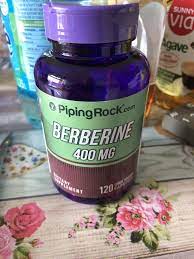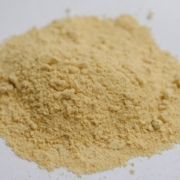IS BERBERINE EFFECTIVE FOR TYPE 2 DIABETES?
Yes, berberine is effective for type 2 diabetes. Due to its ability to reduce blood sugar, berberine is a supplement that recent studies have demonstrated, may be, it is useful in the treatment of type 2 diabetes. It’s generally well accept, inexpensive, and it can work for some people.
WHAT ARE THE BENEFITS OF BERBERINE
- Berberine helps to prevent diabetes since it can boost insulin production, rebuild B cells (which are damage as diabetes develops),
- Has antioxidant effects, and lowers lipid peroxidation, a sign of oxidative stress.
- According to research, oxidative stress is connect to cell damage and a number of chronic health issues.
Studies have revealed that berberine may be beneficial for treating conditions such as high cholesterol, hypertension, PCOS, and skin conditions like burns and sores.
Additionally, because it seems to help control blood sugar, it has been demonstrate to be beneficial for persons with type 2 diabetes.
WHY BERBERINE IS EFFECTIVE FOR TYPE 2 DIABETES
Nobody just develops diabetes overnight; it takes time. When a person’s haemoglobin (A1C) levels begin to deviate into the pre-diabetes range, they can start taking action. Hemoglobin, is a protein found in red blood cells that carries oxygen, and the A1C test determines how much of your haemoglobin is saturate with sugar (glycated hemoglobin).
Scientists have discovered the negative impact, although they are not entirely certain why it has these anti-diabetic effects.
Studies on those who have 2 types of diabetes, revealed that consuming 600–2,700 mg of berberine daily may reduce fasting and long-term blood glucose levels up to 20% and 12%, respectively. This is especially true when combined with blood sugar-lowering medication.
The rate of diabetes type 2 mellitus (T2DM) and dysglycemia (improved blood sugar control and/or impaired fasting glucose) is rising. Despite the ongoing development of hypoglycemic medications, diabetes treatment and its associated consequences continue to be major world health issues.
There are several potential hypoglycemic medication possibilities in traditional Chinese medicine.
Since more than 1400 years ago, berberine (BER), an isoquinoline alkaloid extract, has been used
Often as an oral medication to treat gastroenteritis and diarrhea.
Though berberine’s anti-diabetic effects have been observe in diabetic patients and verify in animal models of diabetes over the past ten years,
The general medical industry has not yet accept its use for two reasons: its nature of action is unknown, and its availability is limited.
As a result, defining its mode of action and improving availability are of utmost importance and the focus of current research. Recent research has also demonstrated that berberine has positive benefits on diabetes complications.
This study comprises berberine’s antidiabetic mode of action, its impact on diabetic complications, and efforts to increase its availability. These studies could influence how widely it is use to treat type 2 diabetes and its consequences.
HOW BERBERINE REDUCES THE BLOOD GLUCOSE LEVELS?
In the United States, one in ten persons has diabetes, and 90 to 95 percent of those people have type 2.
Medical professionals and others looking for natural diabetes treatments have become interested
In latest researches on the potentially medical consequences of berberine.
According to Dana Hunnes, a professional nutritionist at the Ronald Reagan UCLA Medical Center and professor at the Fielding School of Public Health in Los Angeles,
“It looks that berberine may sometimes reduce blood sugar levels and may be as effective as [the diabetic medicine] metformin.”
Researchers discovered berberine might be useful treatment for individuals with diabetes type 2 in 2018, Oncotarget review. They claimed that it had similar blood sugar-lowering effects to metformin, a major medication used to treat high blood sugar.
According to a previous meta-analysis,
Berberine is just as effective at reducing blood sugar levels as pharmaceutical drugs like Glucotrol and Avandia.
You should seek medical advice before using berberine, particularly if you are taking insulin. Be cautious to avoid having low blood sugar as a result.






